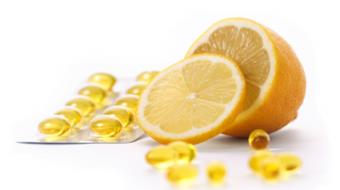Featured Videos
The Importance of Vitamins
Your diet plays a key role in your overall health. Vitamins can support your healthy eating habits and ensure your body is functioning at peak level. By incorporating nutrient-rich foods into your diet like fruits, vegetables, proteins and whole grains, you can enhance your physical and mental health.
Vitamins are involved in a range of processes in your body, including cell growth and immune function. Here are some of the benefits of consuming a diet rich in vitamins:
- Get energy from vitamins that help convert carbohydrates, proteins and fats from foods
- Support immune function to protect against illnesses
- Prevent deficiencies such as scurvy
- Maintain eye health (especially vitamins A, C, and E)
- Promote skin health (e.g., collagen production) and protect against oxidative damage from UV radiation
- Support bone health; vitamin D helps your body absorb calcium. Vitamin D also plays a role in preventing osteoporosis.
- Helping mental health. Some vitamins, such as vitamin B complex and vitamin D, are associated with mood regulation and cognitive function. If you take these vitamins, you may have a reduced risk of depression and anxiety.
Find Foods That Are Rich in Vitamins
Whether you’re snacking or making family meals, consider eating foods that will help you get adequate amounts of nutrition.
- Vitamin A: Sweet potatoes, kale, carrots, spinach, liver
- Vitamin B1: Whole grains, nuts, legumes, nutritional yeast
- Vitamin B2: Dairy products, eggs, leafy green vegetables, almonds
- Vitamin B3: Beef, fish, legumes, avocado
- Vitamin B6: Poultry, fish, bananas, chickpeas
- Vitamin B12: Meat, fish, dairy products, fortified cereals and plant-based milk
- Vitamin C: Citrus fruits, bell peppers, broccoli, Brussels sprouts
- Vitamin D: Fatty fish, fortified dairy products, egg yolks, mushrooms
- Vitamin E: Vegetable oils, nuts, seeds, avocado
- Vitamin K: Leafy green vegetables, cabbage, green peas, parsley
You may not be able to get all the nutrients you need from food itself. In that case, you will need to take a supplement. For example, if you're vegan, you will probably have to take a vitamin B12 supplement.
If you want more information about which vitamins would be beneficial for your health, talk to your family doctor, nutritionist or registered dietitian.

